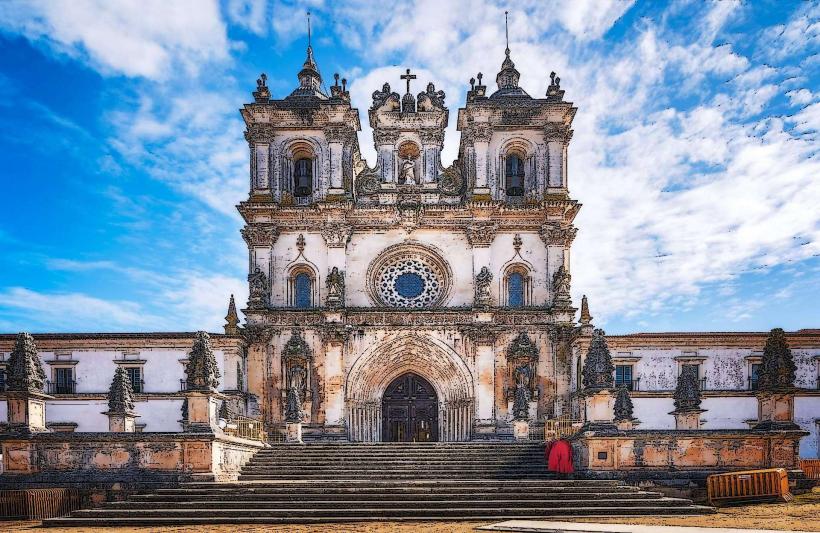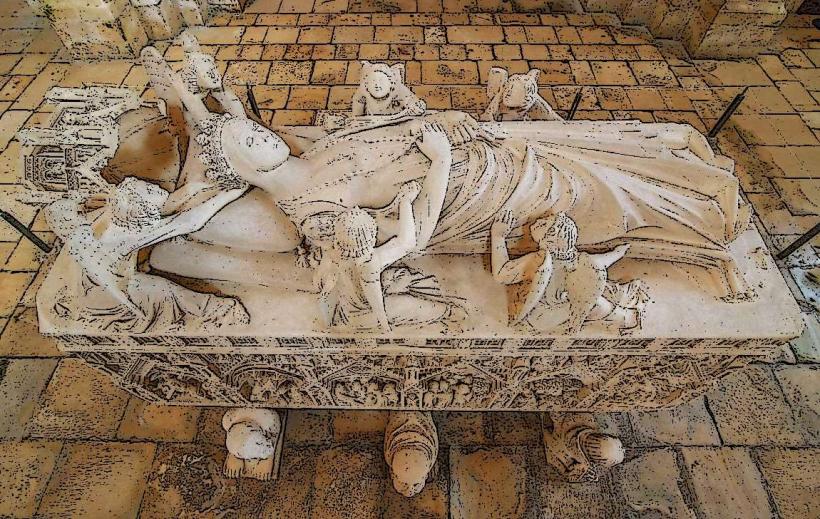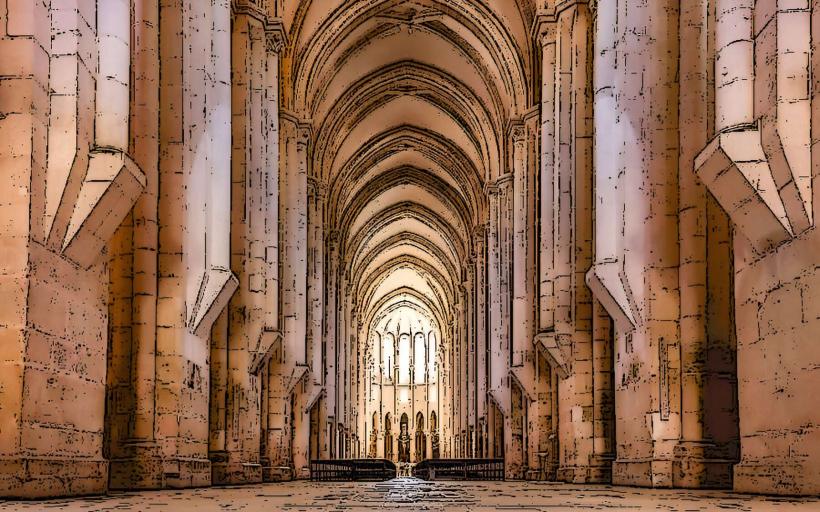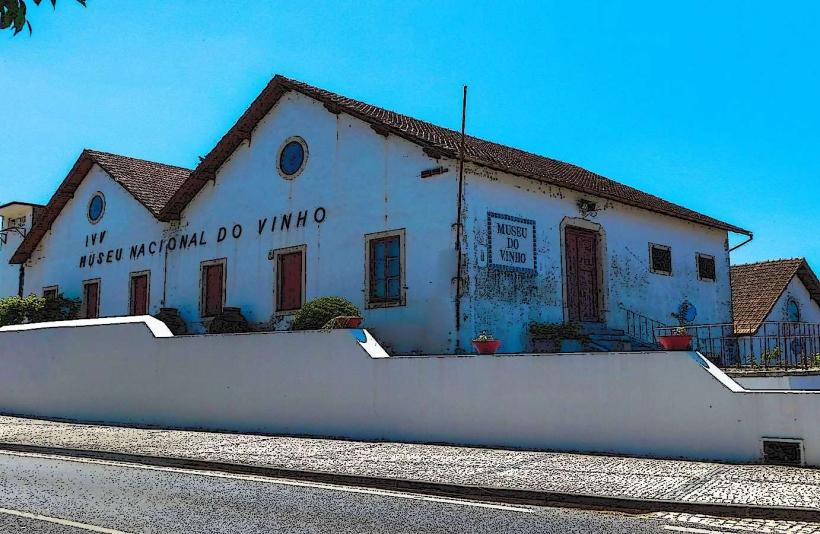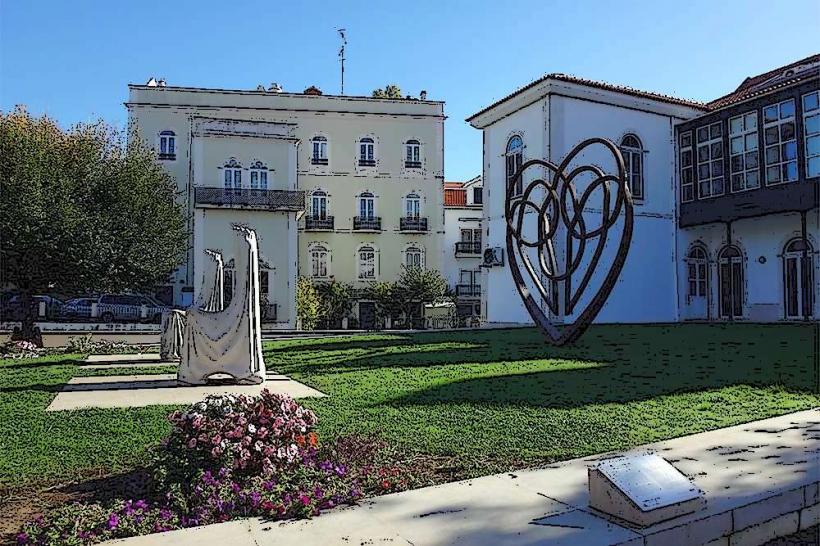Information
City: AlcobacaCountry: Portugal
Continent: Europe
Alcobaça is a historic town in central Portugal, known for its Monastery of Alcobaça (Mosteiro de Alcobaça), a UNESCO World Heritage Site and one of the most important examples of Cistercian architecture in the world. This town has a rich history, stunning architecture, and an important place in both Portuguese and European cultural heritage. Here’s a detailed look at Alcobaça:
1. Historical Significance
- Foundation and Early History: Alcobaça was established in the 12th century by King Afonso I of Portugal as a settlement to support the Cistercian monks who came to Portugal from France. The town grew around the Monastery of Alcobaça, which was founded in 1153 and played a significant role in the religious and cultural development of the region.
- The Cistercian Order: The Monastery of Alcobaça was one of the first and most important monasteries in Portugal and Europe for the Cistercian order, which focused on a strict lifestyle of prayer and labor. The order's presence in Alcobaça helped shape the town and its surroundings, contributing to agricultural development, the spread of the Cistercian philosophy, and the growth of the town.
2. The Monastery of Alcobaça (Mosteiro de Alcobaça)
- Architectural Significance: The Monastery of Alcobaça is an outstanding example of Cistercian architecture, characterized by simplicity and functionality. The church and the monastery complex were built in the early Gothic style, and it is one of the oldest and most important examples of Gothic architecture in Portugal.
- The Church of Alcobaça: The church within the monastery is one of the largest in Portugal, with a simple but majestic design. Its large, unadorned interior reflects the Cistercian values of austerity and devotion.
- Tombs of Pedro and Inês: The monastery is famously the resting place of Pedro I of Portugal and his lover Inês de Castro, whose tragic love story has become a central legend in Portuguese history. Their beautifully crafted tombs, located in the monastery, are a significant feature of the site. The tombs are intricately detailed and are part of the Gothic and Manueline influences that shaped the architecture of the monastery.
- Cloisters: The monastery also contains magnificent cloisters, particularly the Claustro Real (Royal Cloister), which are notable for their architectural beauty and the tranquil atmosphere they create. These spaces were used by the monks for contemplation and daily activities.
- UNESCO World Heritage Site: In 1989, the Monastery of Alcobaça was classified as a UNESCO World Heritage Site for its historical and architectural significance.
3. Cultural Heritage and Traditions
- Religious Importance: The town’s religious significance remains strong, not just through its monastery but also with the presence of several churches and religious sites that attract pilgrims and visitors alike. Alcobaça’s history as a center of religious life continues to be an important part of its identity.
- Historical Center: Alcobaça’s historic center features traditional Portuguese architecture, including narrow streets and charming squares. The central Praça 25 de Abril is the heart of the town, surrounded by cafes, restaurants, and shops.
4. Legends and Folklore
- Pedro and Inês: The most famous legend associated with Alcobaça is the tragic love story of Pedro I and Inês de Castro. Pedro, the crown prince of Portugal, fell deeply in love with Inês, a noblewoman of Galician descent. Despite political opposition, their love flourished, but Inês was eventually murdered by orders of Pedro’s father. After Pedro became king, he exhumed Inês’ body, crowned her as queen, and demanded that the court pay her homage. The tombs of Pedro and Inês in the monastery are a symbol of this dramatic and romantic tale.
- Religious Processions and Festivals: Alcobaça is known for its religious festivals, particularly during Easter, when processions and religious events take place in the town and at the monastery. These events honor the town's deep Christian and monastic heritage.
5. Natural Beauty and Surroundings
- The Alcobaça River: The town lies near the Alcobaça River, which adds to the beauty of the surrounding landscape. The river and its tributaries helped support the agricultural practices that flourished in the region, including the cultivation of fruit, vegetables, and vineyards.
- Cabo da Roca and Beach Access: Alcobaça is not far from the Atlantic coast, where visitors can access nearby beaches, such as the Praia de São Martinho do Porto, which offers scenic views of the bay and coastline. The region also has a mix of rolling hills, forests, and agricultural fields, making it ideal for nature walks and exploring.
6. Culinary Heritage
- Traditional Portuguese Cuisine: Alcobaça is known for its regional cuisine, particularly its use of local fruits and seafood. The area is famous for cherries and apple-based desserts, and cherry liqueur (known as ginjinha), a popular local drink.
- Conventual Pastries: The monastery's influence on the town is also present in its cuisine, with many local pastries and sweets made using traditional recipes from the monks. Ovos moles, a type of egg-based sweet, is a regional delicacy, as well as bolo rei (king cake) and pastéis de nata (custard tarts).
7. Climate
- Mediterranean Climate: Alcobaça experiences a Mediterranean climate with warm, dry summers and mild, wet winters. The summers often see temperatures around 28-30°C (82-86°F), while winters are cooler, with average temperatures around 10-15°C (50-59°F).
8. Accessibility
- By Car: Alcobaça is easily accessible by car from Lisbon, approximately 120 kilometers to the south, which takes about a 1.5-hour drive via the A8 motorway. It is well connected to other towns and cities in central Portugal.
- By Train: The town is served by a train station, which connects to Lisbon and other regional hubs.
- By Air: Lisbon is the nearest major airport, around 1.5 hours away by car.
9. Other Attractions and Activities
- Alcobaça Castle: Located on a hill near the town center, the Alcobaça Castle dates back to the 12th century. Though much of it is in ruins, it remains an important site offering panoramic views over the town and surrounding countryside.
- Parque de Exposições de Alcobaça: The exhibition park hosts events throughout the year, including agricultural fairs, craft markets, and other cultural activities.
- Surrounding Villages: Alcobaça is surrounded by picturesque villages, many of which maintain traditional ways of life and offer opportunities for rural tourism and outdoor activities such as hiking and cycling.
10. Events and Festivals
- Festa de Nossa Senhora da Conceição (Feast of Our Lady of the Conception): This is one of the most important religious festivals in Alcobaça, celebrated with processions, music, and community events.
- Festa das Cruzes: This festival celebrates the town’s historical and religious traditions, with parades and ceremonies in honor of the Holy Cross.
- Festa da Páscoa (Easter Festival): Easter is a significant celebration in Alcobaça, especially in the Monastery, where religious processions and events take place.
Summary
Alcobaça is a town with a rich historical and architectural legacy, shaped by its association with the Cistercian order and the tragic love story of Pedro and Inês. The Monastery of Alcobaça stands as a major landmark, offering a fascinating journey into Portugal’s medieval past, while the town itself offers a charming atmosphere with its traditional Portuguese cuisine, local culture, and surrounding natural beauty. It is a perfect destination for those interested in history, architecture, and the serene beauty of central Portugal.

